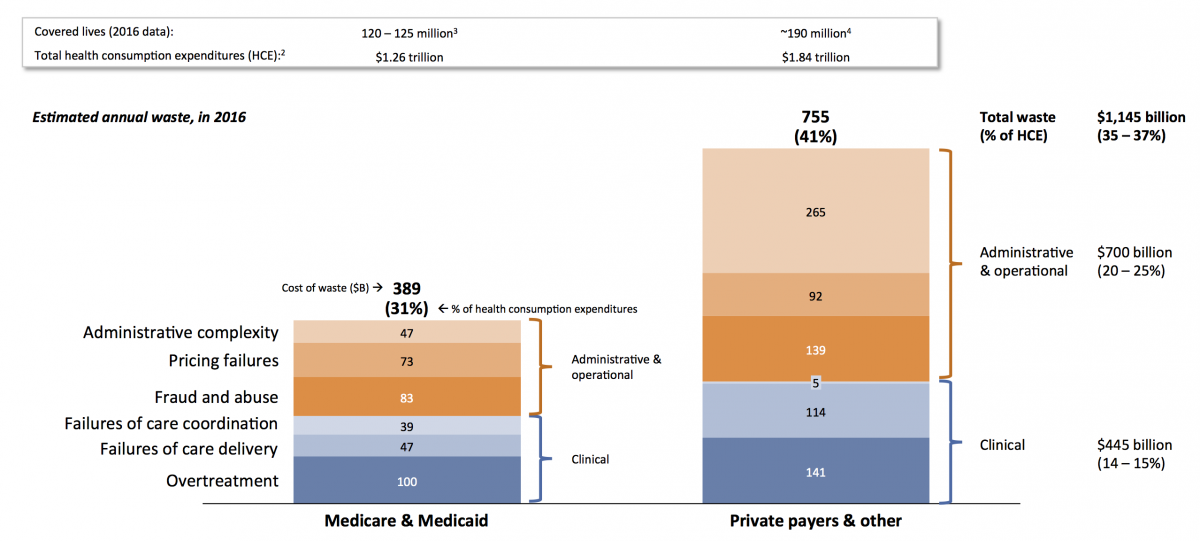Healthcare: Cheater's Edition
 Kim BellardIf you grew up in the pre-video games era, you have probably played Monopoly. If you have, chances are you've probably cheated too; Hasbro's own research indicates half of players do. So they did what, in hindsight, seems like the obvious solution: they created a version of the game that explicitly builds in cheating. Monopoly Cheater's Edition launched June 1.
Kim BellardIf you grew up in the pre-video games era, you have probably played Monopoly. If you have, chances are you've probably cheated too; Hasbro's own research indicates half of players do. So they did what, in hindsight, seems like the obvious solution: they created a version of the game that explicitly builds in cheating. Monopoly Cheater's Edition launched June 1.
My first thought was, gosh, what kind of game builds in cheating? Then it struck me: healthcare. Of course, healthcare is not a game, but there certainly are plenty of rules (some of which make sense, some of which don't), and plenty of, well, if not outright cheating, then at least gaming. And let's not minimize the outright cheating.
Think about it:
- Our goal is, or should be, to be in good health, but too few of us actually do the things we should be doing to help ensure that. We cheat on our exercise, we cheat on our diets, we cheat on our use of alcohol/tobacco/other drugs, we cheat on our work/life balance. And our health suffers as a result.
- Healthcare professionals' goal is, or should be, to put patients' well-being above all, but it seems like we've drifted away from that. We get too much care. We say we want more primary doctors, but as the salary disparities between that and specialty care widen, more physicians opt for the latter. Most physicians pride themselves on their independence, but increasinglyare employed by health systems or other corporations, and all-too-oftenaccept money from vested interests. And, of course, there are those who treat Medicare, Medicaid, and private insurance like their personal piggy banks.
- Medical device and pharmaceutical companies are supposed to deliver products with better outcomes and value, but often seem to introduce ones that offer marginal, if any, added benefits but at much greater costs. Or they just increase prices on existing products, just because they can.
- We've created an entire industry of "middlemen" in healthcare -- think PBMsor health insurers -- and a corresponding army of administrators that add significantly to the costs and hassles of our healthcare systems but that often don't seem to directly benefit patients.
Wait, we don't need a "Healthcare: Cheater's Edition;" we already have it.
Let's go back to the Monopoly version for a minute. It's origin story is as Randy Klimpert, Hasbro's senior director of design and game development, told Fast Company: "We were literally sitting around thinking, ‘what would really corrupt Monopoly?’ And someone said, ‘what if we cheated?’” The new version doesn't allow unfettered cheating; they took 15 of the most popular cheats, added a few "fun" ones of their own, and relaunched the game, updating the board and pieces while reducing the average play time from over 2 hours to a more millennial-friendly 45 minutes.
The new version doesn't allow unfettered cheating; they took 15 of the most popular cheats, added a few "fun" ones of their own, and relaunched the game, updating the board and pieces while reducing the average play time from over 2 hours to a more millennial-friendly 45 minutes.
There are also handcuffs -- literally -- involved, but let's not go there.
I'm not suggesting that, when it comes to healthcare, we do as Hasbro did -- simply incorporate known types of cheating into the rules of the "game." That is not a game we should want to play. It is not a game that is leading to a healthier or more prosperous population.
I am suggesting that if the "business model" of something as old as Monopoly can get updated, maybe we should be thinking more about updating healthcare's business model(s) too.
In a Fast Company article, John Elkington and Richard Johnson (both of Volans) argue that what drives breakthroughs is not new technologies, but new business models. New technologies are the "shiny" objects that we fall in love with, but:
...tomorrow’s market leaders are the ones already sketching a new business model on the proverbial napkin. Business models are what connects a technology’s potential with real market needs and consumer demand.
They go on to postulate that breakthrough business models come from unmet needs, needs "...that are often left unmet not because they can’t be met, but because the incumbents have been innovating at the high end of the market, chasing ever larger margins."
Sound like healthcare? Lots of unmet needs, with incumbents mostly innovating at the high end? Causes Of Waste In The US Health Care System Daniel P. O’Neill David Scheinker Health Affairs
Causes Of Waste In The US Health Care System Daniel P. O’Neill David Scheinker Health Affairs
Somewhere tomorrow's healthcare market leaders are sketching out new business models to address its many unmet needs. Direct primary care is one such attempt. Approaches like Citizen Health are another. They won't be the last, and they won't be the most radical.
Here's a more radical example, as outlined by John Nostra: treat our healthcare (and other) data not as the "free" good we keep giving away, but as property. Ourproperty.
He discusses what a new company called hu-manity.co is doing along these lines, asserting ownership of our own data as a new, fundamental human right. As Mr. Nostra says:
Simply put, Hu-manity.co has established unique and proprietary technology to establish contracts on blockchains which individuals establish, monitor and modify consent and authorization with corporations for their data
He goes on to conclude: "And as property owners, we all have a stake in the power of data....Now, owning your data could advance to a higher order and the consequences for humanity might just be priceless."
A healthcare system in which we owned our own data and accrued the value from it wouldn't act, or maybe look, much like our current system. Good.
Here's another radical example (admittedly, only a very brief sketch of a new business model): treat our health as a capital asset. We would need to start with a value of that asset; what is a human life with good health worth? It's a hard question, but some economist somewhere could undoubtedly put a value on it. Things that improve or maintain it are investments. Things that cause our health to decline are spending.
Suddenly health habits and treatments would have a clear consequence. We would have to consciously think about how we manage and maximize our capital asset. Who "pays" and how, who gets the "returns on the investments" and how, would all have to get worked out. Again, hard, but not impossible.
Treating our health as a tangible, long-term asset, with explicit "investments" and "spending," would radically change the incentives in healthcare, and create hosts of new business models. There are some pretty smart people out there who might be able to make them work.
Now, that's the kind of "cheating" that could make healthcare better.
- Login to post comments